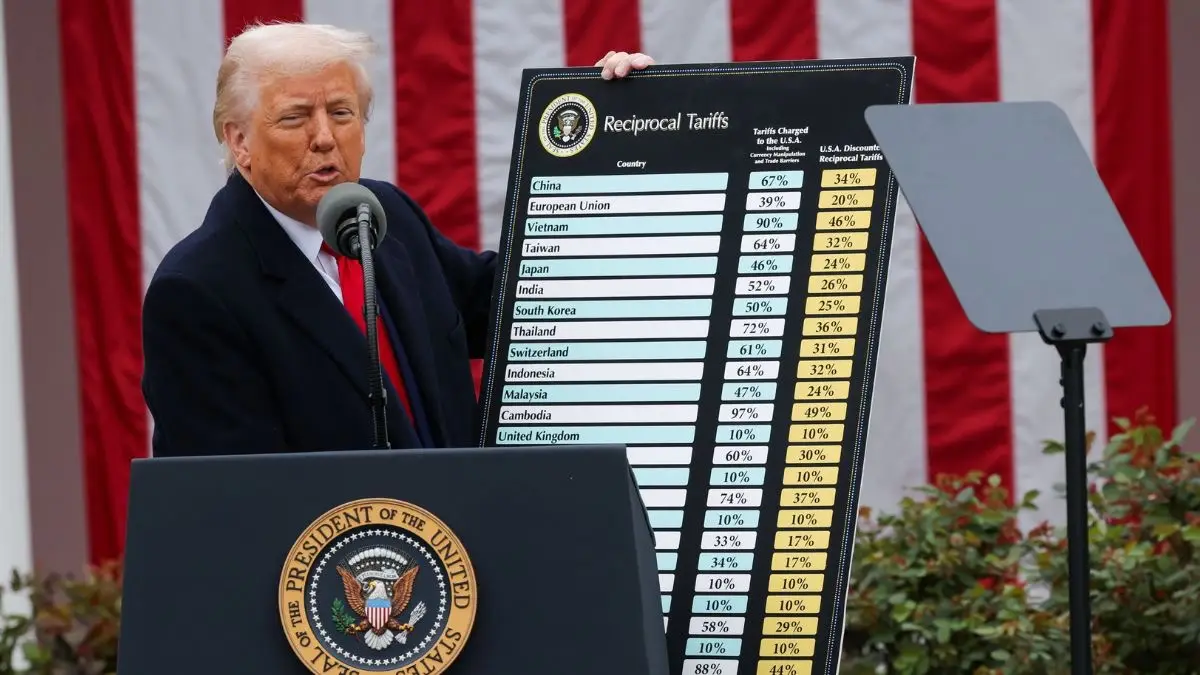Copyright republicworld

Since the US President Doanld Trump had first imposed tariffs on trade partners on April 2, 2025 its been subjected to severe criticism both internally and top trading partners of the United States.A trade tactic used to sway bilateral ties in America's favour is now headed to the US Supreme Court on Wednesday as several small businesses and a group of states are contesting teh basis for such implementation illegal.If the apex curt rules in favour of the petitioner then Trump's Liberation Day tariff tactics would be upended,The Fed government would most likely have to refund some of the billions of dollars it has collected through the tariffs, which are taxes on imports.The final decision from the justices will come after what could be months of poring over the arguments and discussing the merits of the case. Eventually they will hold a vote.Trump has signalled that lossing the case, would translate into a loss for the United States for the years to come as it would have "weakened" and placed the country in a “financial mess”.On Sunday, the president said he will not attend the hearing in person as he did not want to cause a distraction."I wanted to go so badly... I just don't want to do anything to deflect the importance of that decision," he said. “It's not about me, it's about our country.”The stakes feel just as high for many businesses in the US and abroad, which have been paying the price while getting whipped about by fast-changing policies.Trump's tariffs will cost Learning Resources, a US seller of toys made mostly overseas and one of the businesses suing the government, $14m (£10.66m) this year. That is seven times what it spent on tariffs in 2024, according to CEO Rick Woldenberg."They've thrown our business into unbelievable disruption," he said, noting the company has had to shift the manufacturing of hundreds of items since January.In the ultimate deciding call on Trump's tariff policies, the US SC will consider its decision the limit of Trump's Presidential power.The Trump led administration imposed using the 1977 International Emergency Economic Powers Act (IEEPA), which the White House has embraced for its speed and flexibility. By declaring an emergency under the law, Trump can issue immediate orders and bypass longer, established processes.Trump first invoked the law in February to tax goods from China, Mexico and Canada, saying drug trafficking from those countries constituted an emergency.His major trade policy overhaul came on April 2 with levies falling anywhere between 10% to 50% on goods from almost every country in the world.This time, he said the US trade deficit - where the US imports more than it exports - posed an "extraordinary and unusual threat".Those tariffs took hold in fits and starts this summer while the US pushed countries to strike "deals".The ones opposed to Trump's tariff play are of the view theat the US President is legally within his rights to regulate trade, however, there is no mentiond of "tariffs", which as per them only Congress can establish taxes under the nation's constitution.Meanwhile, the members of Congress from both parties have emphasised that the Constitution gives them responsibility for creating tariffs, duties and taxes, as well.More than 200 Democrats in both chambers and one Republican, Senator Lisa Murkowski, filed a brief to the Supreme Court, where they also argued the emergency law did not grant the president power to use tariffs as a tool for gaining leverage in trade talks.



